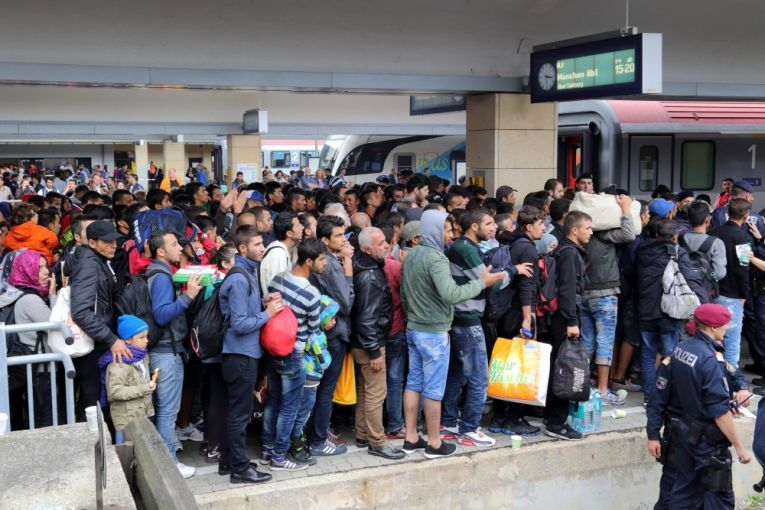An example of failing global affairs: when the new Italian government made it clear that it would not be “Europe’s refugee camp” and refused to bring in ships with immigrants, the implication was immediately evident in its neighbor, Spain, where 22,000 immigrants have arrived since the beginning of the year.
The Spanish government does not meet the burden: there are not enough policemen, not enough beds, not enough food. But this isn’t Spain or Italy’s problem, it’s the continent’s problem. EU leaders fail to present a true, long term solution, as they make a decision to open or close their gates based on political, economic and reputational reasons.
But mass immigration is only a symptom. It joins a long list of intricacies that make up a multi-faceted global crisis facing humanity — socially, economically, and ecologically. And all those challenges share a common root: the incompatibility of a divided humanity with an increasingly interdependent world.
Europe is where many of the global challenges are rising to the surface at once, demanding to be solved. As part of that, today’s Europe is eating the bitter porridge it has cooked for itself since the days of the capitalist colonialist race of the late nineteenth century, where European powers were hungry for the wealth of natural resources and cheap manpower of Asia and Africa.
Today’s Europe is eating the bitter porridge it has cooked for itself since the days of the capitalist colonialist race of the late nineteenth century, where European powers were hungry for the wealth of natural resources and cheap manpower of Asia and Africa.
The European pride tells a story of moral and cultural contribution to primitive Third World populations. But in practice, history shows that many countries that were under European rule did not receive the educational, economic, and political means to enable them to join the rest of the world as equals. In fact, European countries uprooted the ancient spiritual values from Africa with the dissemination of Christianity, and led to ethnic segregation, and even brutal civil wars, with their agenda to divide and conquer.
Today, the boomerang is flying back to hit Europe. The swarms of African immigrants that flood its gates pose a socioeconomic burden on countries, while millions of Muslims are gradually reshaping European culture.
Sooner or later, we will all recognize that humanity has become one large colony that inhabits immigrants from almost every country. In parallel, our inevitable global interdependence will necessitate us to make significant socioeconomic changes, to balance the standard of living across all countries.
Sooner or later, we will all recognize that humanity has become one large colony that inhabits immigrants from almost every country.
“Do not be surprised if I mix together the well-being of a particular collective with the well-being of the whole world,” writes Kabbalist Yehuda Ashlag in his article “Peace in the world.” “Because indeed, we have already come to such a degree that the whole world is considered one collective and one society… Therefore, everyone must care for the whole world in order to ensure his own existence.”
Global vision, an integral feeling, cooperative thinking are just some of the principles of the new approach we must cultivate within us. A fundamental change in human awareness is bound to happen. If we see the necessity for this in advance, and move toward it of our own accord, our “migration” to a new connected world will be a lot more peaceful.












